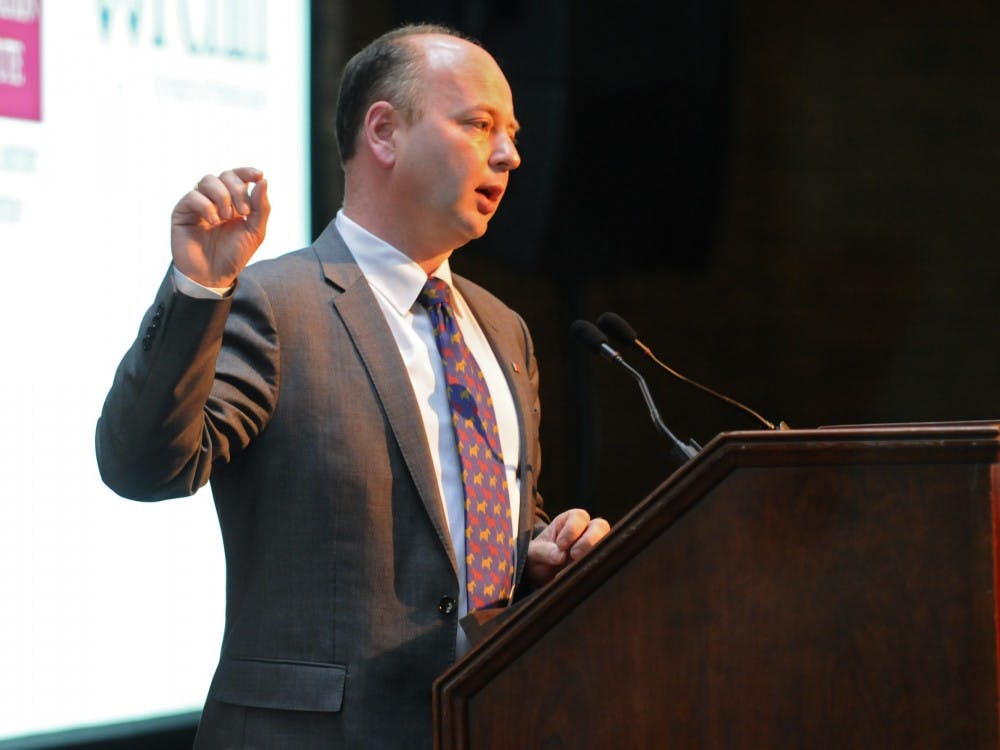One of the largest digital video libraries in the world is now available at Penn.
Over 52,000 video testimonies of Holocaust survivors, rescuers, war crime participants and liberators will be available to Penn students and faculty in 32 languages and from 56 countries. The archive, which will be accessible online in Van Pelt-Dietrich and Annenberg libraries, also contains testimonials from victims of other global atrocities such as the genocides in Rwanda and Cambodia and apartheid in South Africa.
In a press conference and media preview on Monday night, Penn President Amy Gutmann enthusiastically recognized Penn’s historic partnership with University of Southern California’s Shoah Foundation Institute for Visual History and Education, a non-profit established in 1994 by film director Steven Spielberg, a year after completing “Schindler’s List.”
Gutmann recalled that Spielberg was eager to bring Shoah to Penn last year. In response to the question of partnership, Spielberg replied, “Why don’t we do it?”
History professor Beth Wenger, who serves as director of the Jewish Studies Program at Penn, explained that video testimony offers unique historical perspectives that contextualize events like the Holocaust as being part of complex historical patterns as opposed to isolated events.
“While this archive provides a unique encounter with survivors on an individual level, it also allows for the kind of research that makes broader conceptualizations possible,” she said.
Wenger also emphasized the vast potential uses of the archive.
“This archive will be of enormous importance to students and scholars in medicine, philosophy, law, business, ethics, literature, film and the list goes on,” she added.
Archive users will be able to search for specific categories of Holocaust victims, such as Jehovah’s witnesses or homosexuals.
At the preview of the archive on Monday at the Annenberg Center for the Performing Arts, the discussion centered around promoting a greater call to action to historically contextualize atrocities in order to confront those of our own time.
Executive Director of the USC Shoah Foundation Stephen D. Smith presented an excerpt of a multi-hour testimony by Holocaust survivor George Papanek, who stressed the importance of engaging with one’s community and maintaining a global mindset.
Just “because the Nazis are gone does not mean that evil is gone. There are many forms of evil. Wherever you are you can find it,” he said. “It is very important to be a part of the world in which you live, to be engaged in the world.”
Smith also presented a video of a survivor performing the violin piece he played for an SS officer when he was just a boy.
Penn students who attended the preview said they were eager to utilize the archives.
College freshman Jacob Ruden said that he believes the archive is a way of hearing from a variety of individuals with contrasting experiences. “This is not something you research once,” he said, adding that this archive is a “once-in-a-lifetime opportunity.”
Though her time at Penn is nearing its end, College senior Becca Elman said she plans to use the archives for an exclusively personal reason.
“I will use this to remember,” she said.



